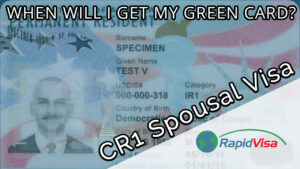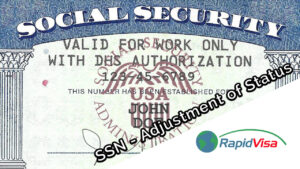Page 2 of the ‘Green Card’ Category
Getting your green card is an important step in your immigration process. Learn which mistakes to avoid, along with costs, processes and timelines. If you’re new to US Immigration, it may help to first learn the basics of green cards.
29Jun2021
Detailed guides for each of the main pathways to a visa A person seeking a family-based green card can do so if they are a spouse, child, parent or sibling. A spouse seeking a marriage-based green card must generally follow one of four different pathways, based on where they live and whether their spouse is […]
Read More »
28Jun2021
Answers to frequently asked questions about green cards and the U.S. immigration system Green Card and Immigration Basics What is a green card? A “green card,” issued by U.S. Citizenship and Immigration Services (USCIS), provides proof of lawful permanent resident status, with authorization to live and work anywhere in the United States. Most green cards […]
Read More »
23Jun2021
Common concerns gay and lesbian couples may have with green card applications Is It Possible? Can lesbian and gay married couples apply for a green card if one partner is a U.S. citizen or green card holder? The short answer: yes! The U.S. Supreme Court’s federal marriage equality decision in 2013 (United States v. Windsor) […]
Read More »
17Jun2021
Promising financial support as a green card sponsor with form I-864 What is an Affidavit of Support? The “Affidavit of Support” is a signed document to accept financial responsibility for a family member who is seeking a green card. It is also known as U.S. Immigration Form I-864. For simplicity, we’ll call the person signing […]
Read More »
16Jun2021
The responsibilities of a financial co-sponsor on an Affidavit of Support (Form I-864) What is a joint sponsor? A joint sponsor — or a financial co-sponsor — is a U.S. citizen or green card holder (permanent resident) who agrees to take on the legal obligation of financially supporting an applicant for a family-based green card. […]
Read More »
11May2021
What if I don't remember all my addresses? U.S. Citizenship and Immigration Services (USCIS) allows some flexibility on this section of the green card application, and is generally understanding if the sponsoring spouse or spouse seeking a green card can’t remember certain addresses or dates. However, if there are significant gaps in address history, a […]
Read More »
17Sep2019
Homeland Security recently issued a new public charge rule that our customers have been asking about, so we wanted to briefly go over this. A “Public Charge”, as defined by the USCIS, is a person who is likely to become: ...primarily dependent on the government for subsistence, as demonstrated by either the receipt of public […]
Read More »
23Aug2019
Normally, the USCIS will send the green card within two to four weeks. So, she should be able to get her green card within that time frame, unless you move to another address. Usually, it will be returned back to the USCIS and you have 60 days to contact them, otherwise, they will destroy her green card and you have to apply for a replacement, which is several hundred dollars.
Read More »
01Aug2019
Based on our experience, most customers receive their SSN after they’ve received the combo card. At least, that’s what we’re seeing right now. They usually receive it one to two weeks after they receive their combo card. The combo card looks like a driver’s license. That’s your authority to work in the United States and also authority to travel outside of the United States.
Read More »
14Jun2019
As a self-employed individual or person who owns a business, it’s natural to take advantage of all the tax deductions you can to reduce your taxable income. You have every right to do it. Unfortunately, for USCIS and tax purposes, your income is basically what you pay taxes on.
Read More »









